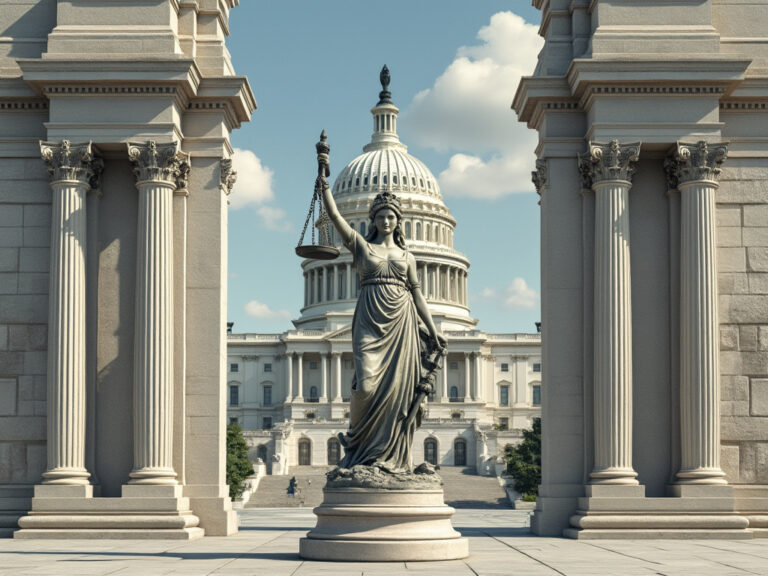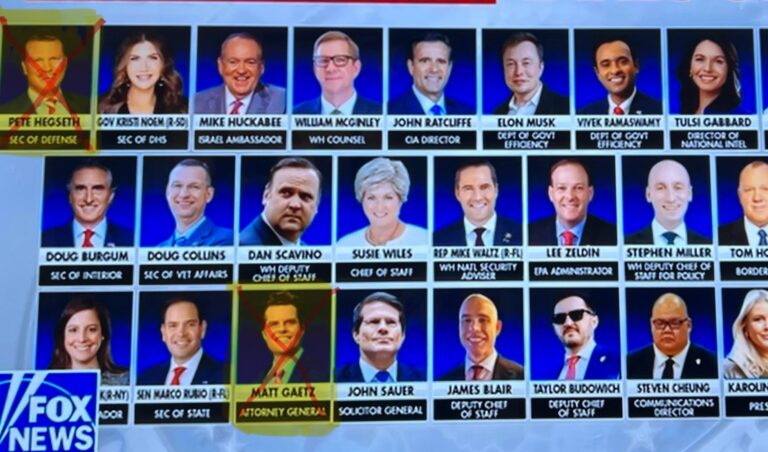
A Turbulent Start
In a dramatic return to power after the 2024 election, President-elect Donald Trump faced the formidable
challenge of assembling a cabinet that would reflect his policies and priorities while navigating a deeply divided nation.
For Trump’s supporters, his administration’s return promised a continuation of his “America First” agenda.
For his critics, it marked a resurgence of controversies and governance that thrived on disruption.
However, the process of selecting cabinet nominees quickly unraveled. Allegations of sexual misconduct, conflicts of interest,
and controversial past statements dogged many appointees, thrusting the administration into turmoil before its official start.
This unprecedented chaos left a fractured Republican Party grappling with its identity and a Democratic opposition galvanized for battle.
What should have been a moment of triumph for Trump’s supporters turned into a firestorm of political and ethical scrutiny.
The Controversies Surrounding Cabinet Nominees
Pete Hegseth, Robert F. Kennedy Jr., Linda McMahon, Elon Musk, and Matt Gaetz were among Trump’s initial selections,
each bringing their own controversies. These ranged from resurfaced sexual assault allegations to significant ethical questions
about conflicts of interest and past political actions.
Pete Hegseth: Secretary of Defense
Pete Hegseth, a Fox News commentator and Army veteran, was Trump’s pick for Secretary of Defense. A staunch conservative,
Hegseth’s nomination initially energized Trump’s base. However, the resurfacing of a 2017 sexual assault allegation cast a
shadow over his confirmation. The allegation, stemming from an incident at a Republican women’s conference, included claims
of non-consensual advances and inappropriate behavior. Hegseth denied the allegations, dismissing them as politically motivated attacks.
For his supporters, the controversy was a smear campaign against a patriot. For his detractors, it was emblematic of a broader
failure to vet nominees. Senate Democrats demanded an FBI investigation into the allegations, further complicating Hegseth’s path to confirmation.
Robert F. Kennedy Jr.: Secretary of Health and Human Services
Trump’s nomination of Robert F. Kennedy Jr., a vocal anti-vaccine activist, to lead the Department of Health and Human Services (HHS) ignited fierce backlash. Critics argued that his appointment undermined public health efforts.
Linda McMahon: Secretary of Education
Former WWE CEO Linda McMahon faced criticism for her lack of experience in education policy and her ties to a high-profile lawsuit alleging child sex abuse within WWE.
Elon Musk: Head of the Department of Government Efficiency
Elon Musk, nominated to head a proposed Department of Government Efficiency, became one of the most polarizing figures in Trump’s cabinet.
Matt Gaetz: Attorney General
Congressman Matt Gaetz’s nomination as Attorney General set off alarm bells across the political spectrum, due to allegations of sex trafficking and ethical concerns. Although, uncharged, the damage to his nomination has been done. In true defeatists’ fashion, he was withdrawn his campaign to garner the public’s approval as well as the Senate’s.
Public Reactions and Media Coverage
Mainstream media painted the cabinet selection as a chaotic endeavor reflective of Trump’s governance style. Right-wing outlets framed
the backlash as an orchestrated attack by political elites. Social media platforms amplified the divisions, with hashtags like
#TrumpCabinetDisaster trending alongside #MAGA2024.
Historical Context
Trump’s first administration faced similar controversies with cabinet picks like Betsy DeVos and Rex Tillerson. However, the intensity
of scrutiny in 2024 surpassed previous levels. By examining historical parallels, political analysts highlighted patterns of prioritizing
loyalty and ideological alignment over experience.
A Nation Divided
The turmoil surrounding Trump’s cabinet nominations reflects broader tensions in American politics. For supporters, the nominees symbolize
a commitment to disrupt the status quo. For critics, they represent ethical compromises and governance failures. As the confirmation battles
unfold, the long-term implications for governance, public trust, and America’s global standing remain uncertain.




